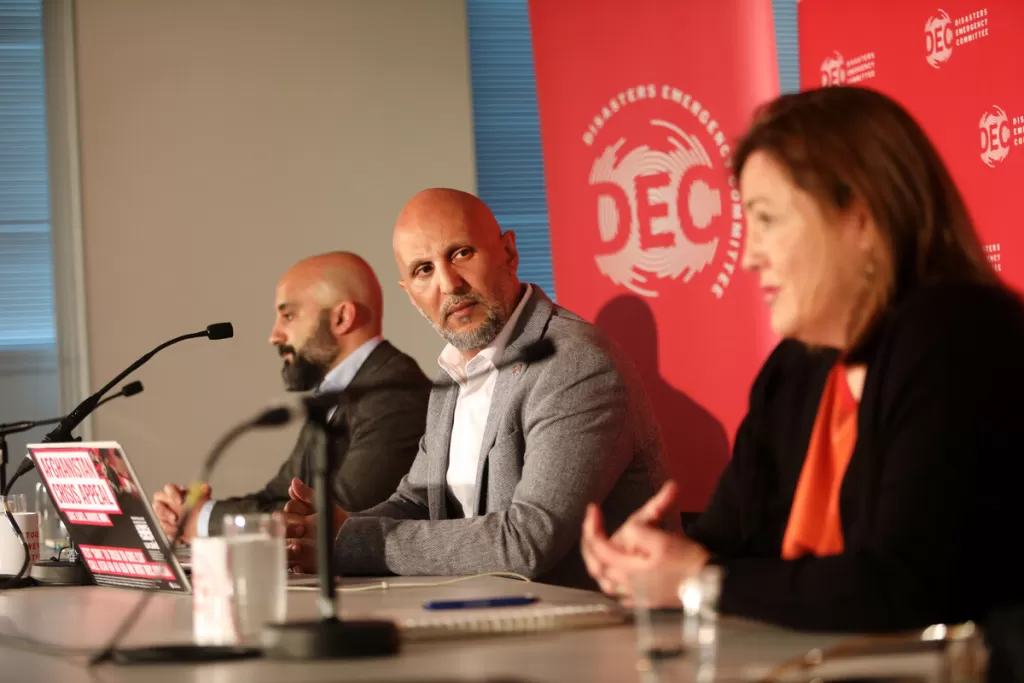The people of Afghanistan are facing a crisis of catastrophic proportions. 22 million face acute hunger; over eight million are on the brink of famine. Lives are already being lost.
Saleh Saeed, the DEC’s chief executive, says it is ‘beyond horrific.’ David Beasley, Executive Director of the UN World Food Programme has described it as “the worst humanitarian crisis on earth.”
With snow falling in Kabul and the cold about to set in to block off supply routes, aid workers say there is a narrowing window of opportunity to save lives.
13 DEC charities are on the ground in every province of Afghanistan, standing by to scale up their operations to meet critical areas of need – emergency food, healthcare, and shelter, bedding, fuel and warm clothes that are essential for families to survive the winter.
Launching the appeal, the DEC arranged a briefing with aid workers who witnessed the crisis first-hand. Maryann Horne, Senior Advisor, Humanitarian Crises and Emergencies, for the British Red Cross, who was in Afghanistan earlier this month, said: “This is no longer about making things better. This is about saving lives and being able to reach those who most need it before it's too late.”
The worst situation I have seen
Speaking from Kabul, Fiona McSheehy, Director of Humanitarian Operations for Save the Children UK, said: “I’ve witnessed emergencies around the world. I can honestly say this is the worst situation I have seen.”
Tufail Hussain, UK director of Islamic Relief, recently returned from the country. While there, he saw mothers hysterical, pleading with aid workers to take away children they were no longer able to feed themselves.
“We heard stories of children arriving at hospitals malnourished but literally being left on the doorstep to die because there is no one there to treat them,” he said.
Years of conflict, poverty and the disruption caused by the pandemic were already taking their toll on the people of Afghanistan. The recent conflict and change of government, coupled with the worst drought in 27 years, have tipped the country over the edge. Economic collapse has sent food prices soaring.
Winter is coming quickly
DEC members and their partners are able to reach even the most remote and hard-hit communities with life-saving supplies but funding must arrive fast for help to get to those most at risk before Afghanistan’s incredibly harsh winter sets in.
“Winter is coming very quickly now,” McSheehy said. “We have a dedicated staff but just not enough funds – needs are far outstripping supplies. There are queues of people at health clinics with malnutrition and pneumonia. We’re seeing shops closing and the banking system collapse.”
Horne added: “People are living hand-to-mouth not knowing where the next meal will come from.
You have mothers and fathers in Afghanistan with 12 children used to living on £2 a day who have had months of nothing. They’re saving on everything: wood, oil. As winter progresses the situation will get worse.
“But we’re full of hope that with a little bit of help, we can do great things and continue to support those who are at the coalface.”

